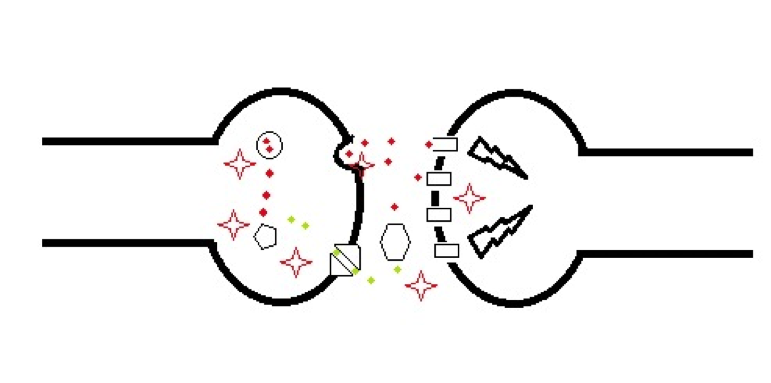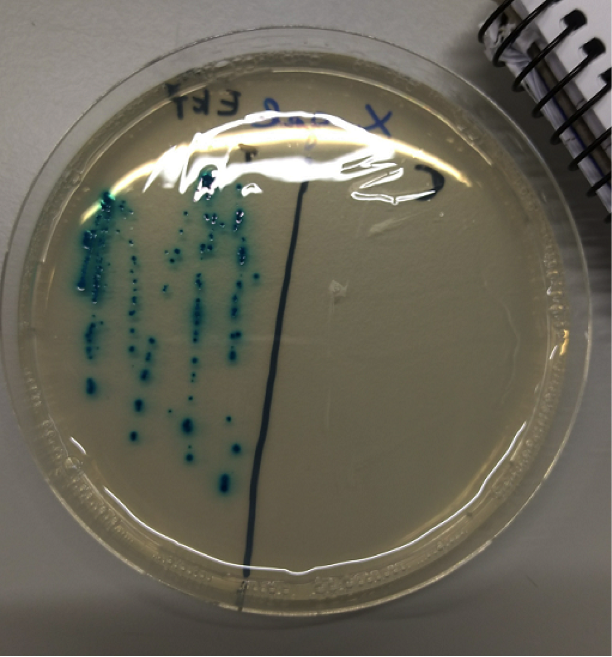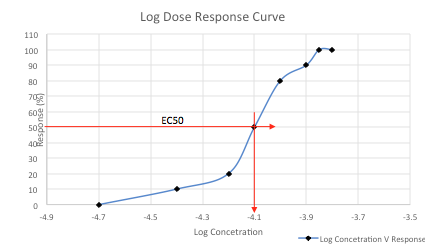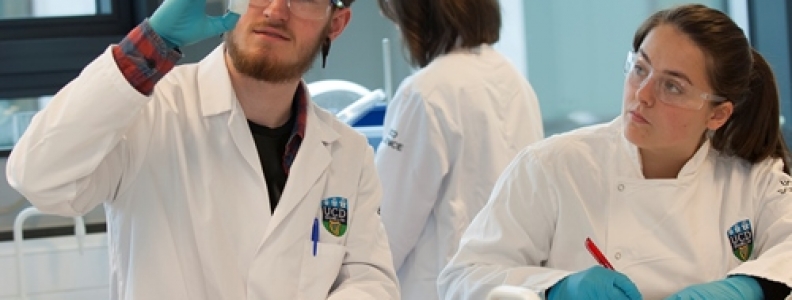Science Student Ambassador Eoin Kilroy-Talbot explains what attracted him towards studying pharmacology and what it is like to study it here in UCD
When I say to people I study Pharmacology the first thing I get asked is “Is that like pharmacy?” This was a question I often had for myself when I was looking at the list of things I wanted to do with my science degree in UCD. The subject is more than just drugs, drugs and more drugs (we do, do a lot of that though!) I study a whole range of topics to give me the ultimate understanding of the human as a whole to hopefully go forth and save the lives of people all over the world!

This is the basics for any pharmacologist. They will see a drawing like this of a cell signal that is known to go wrong. From this drawing, they will then be able to find potentially every site that could be targeted by drugs to increase or decrease the signal depending on what is needed this has been labelled by red stars. This is how pharmacologists decide how to design their experiments and trials to make new drugs to treat all the conditions out there.
What is Pharmacology?
The Oxford dictionary’s definition of Pharmacology is “The branch of medicine concerned with the uses, effects and modes of action of drugs” so as I said there is a lot of drugs focus however there is also the study of the effects and how the drug works. So, this means you need to understand the way that the drugs enter the body then how they get to where they need to go. After that you need to understand what cells they are working on in the body and the effect that this drug will have on the system as a whole! This means that we need to know Biochemistry, Neuroscience, Cell Biology along with the specific drug knowledge.
When I talk about drug knowledge what I am talking about is not sitting down on my laptop looking up a website like Drugs.com and learning off every drug name and what it’s used for and all its side effects that’s just torture and useless for advancing the science!
Instead, I am learning about the different types of drugs associated with certain conditions so for example I would be studying Schizophrenia so I will be learning about what Schizophrenia is (what it is symptomatically, where it affects and what causes it), then what’s thought or known to be wrong in a person who suffers from Schizophrenia, like too much of a certain molecule in the brain, and what are the current treatment options for a sufferer and why they are used. For Schizophrenia, these treatment options are often known as anti-psychotics but inside this there is a raft of different types of treatment options such as ones that prevent molecule release or drugs that make enzymes more active to break up more of the undesired molecule.

This may look like blue dots but this is some bacteria I implanted with a portion of DNA, a plasmid, and it’s currently producing the enzyme Lactose. This is put on a special petri which makes the bacteria invisible (right) if they don’t have this special piece of DNA.
Then inside each of these types of treatment I would learn what makes each type different compared to the other forms of treatment from several perspectives such as side-effects, methods of administration and finally a name example of the type of treatment being discussed is needed and sometimes things such as cost of drugs and the history of treatment options of the drug are discussed. We often also learn the ways in which scientists work to analyse the effectiveness of a drug, experimental methods, and how they can identify new problems that are associated with the disease/condition and if new treatments work or not. We also learn the importance of running ethically sound experiments.
What’s Pharmacology in UCD like?
So, as you can see from the example it’s a broad coverage of everything from A-Z related to a disease or condition and how we can potentially treat it to the benefit of the sufferer (I know it sounds hard but trust me it’s not as bad as it sounds!). What I particularly love about our degree is we are never told which medication is the one that fixes all but we are told what is the current first choice, which you can often figure out yourself by the end of the topics discussion. We are regularly told when each treatment isn’t working or if there are problems with a disease that need to be fixed by having a new generation of treatment developed or for someone to discover the source of the problem! It serves to give me optimism that there is something that I can come in and fix and save people’s lives or improve their life so they can live a somewhat normal life.

A sight familiar to all pharmacologists a log dose response curve from a practical I did. This shows the effect of the drug on the target. This allows one to determine the dose of drug needed to have a response in 50% of the population (EC50)
There is also the opportunity to do internships in UCD and further afield to places like Vienna for a summer of real life lab research experience which can be invaluable and help you plan your steps after completing your degree! Here in UCD, the teaching staff are so incredibly helpful it’s amazing! They are always here to help you out whether it be looking for more clarity on a topic that was mentioned in a lecture, getting feedback on exams to improve your grades going forward or seeking advice on the best steps for you to follow to help achieve your dreams!
In my pharmacology degree, I have quite literally had my mind blown more times than I can count with all the amazing information that our bodies contain! I would love everyone to do pharmacology and love it like I do but it’s not for everyone I always say when people ask me should I do pharmacology. If the idea of making drugs safer, people healthier and saving the lives of people who have no help sounds like the kind of thing you want to do with your life maybe pharmacology is the choice for you. I think it’s the choice for me and it’s one I never gave much thought to at first but like a can of Pringles once you start you can’t stop!






